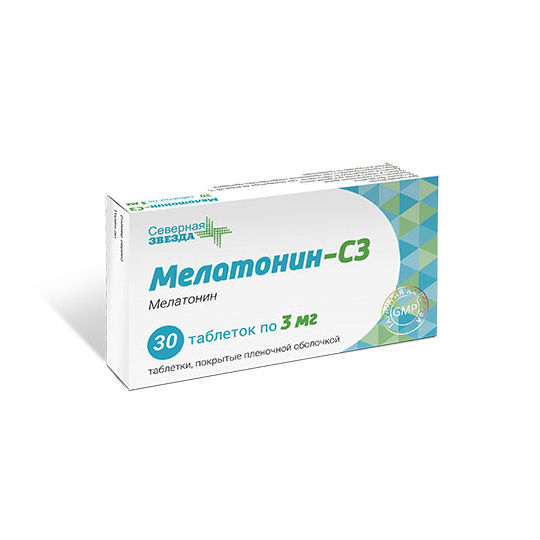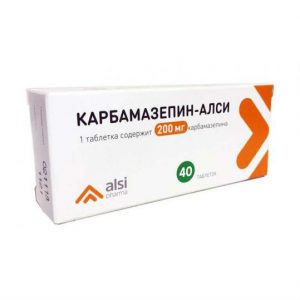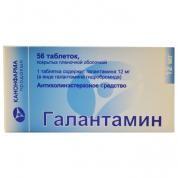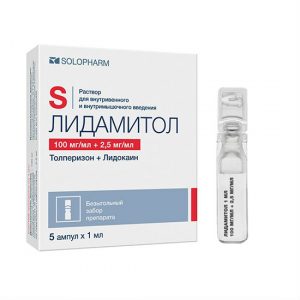Description
Pharmacological action
The synthetic analogue of the hormone of the pineal gland (pineal gland) has an adaptogenic, sedative, hypnotic effect.
Normalizes circadian rhythms. Increases the concentration of GABA and serotonin in the midbrain and hypothalamus, changes the activity of pyridoxalkinase involved in the synthesis of GABA, dopamine and serotonin. Regulates the sleep-wake cycle, daily changes in locomotor activity and body temperature, positively affects the intellectual-mnestic functions of the brain, the emotional-personal sphere.
Promotes the organization of biological rhythm and the normalization of night sleep. Improves the quality of sleep, accelerates falling asleep, regulates neuroendocrine functions. Adapts the body of weather-sensitive people to changes in weather conditions.
Indications
Sleep disorders, including due to disturbance of the rhythm of sleep-wakefulness, such as desynchronosis (a sharp change in time zones).
Contraindications
hypersensitivity to the components of the drug
autoimmune diseases
liver failure
severe renal failure
pregnancy
breastfeeding
children under 18 years of age.
Precautions: Patients with varying degrees of renal failure.
Directions for use
Inside, 30–40 min. In case of sleep disturbance – 3 mg once a day.
In desynchrosis as an adaptogen when changing time zones – 1 day before the flight and in the next 2–5 days – 3 mg each. The maximum daily dose is 6 mg.
Elderly patients. With age, there is a decrease in the metabolism of melatonin, which must be considered when choosing a dosage regimen for elderly patients. With this in mind, in elderly patients, it is possible to take the drug 60–90 minutes before bedtime.
Renal failure. The effects of varying degrees of renal failure on the pharmacokinetics of melatonin have not been studied, so melatonin should be taken with caution in such patients. Patients with severe renal failure are not recommended.
Special instructions
It is recommended that you avoid exposure to bright light while using Melatonin-SZ.
It is necessary to inform women who want to become pregnant about the presence of a weak contraceptive effect in the drug. There is no clinical data on the use of melatonin in patients with autoimmune diseases, and therefore the use of this category of patients is not recommended.
Influence on the ability to drive vehicles and control mechanisms. The drug Melatonin-SZ causes drowsiness, in this regard, during the treatment period, you should refrain from driving vehicles and engaging in potentially dangerous activities that require an increased concentration of attention and speed of psychomotor reactions.
Composition
Film-coated tablets 1 tablet
active substance:
melatonin 3 mg
excipients: MCC – 48.5 mg sodium carboxymethyl starch – 6.5 mg calcium hydrogen phosphate dihydrate – 41 mg magnesium stearate – 1 mg
film sheath: hypromellose – 1.53 mg polysorbate80 (tween80) – 0.64 mg talc – 0.51 mg titanium dioxide (E171) – 0.32 mg
Side effects
Classification of the incidence of side effects according to WHO recommendations: very often ( 1/10) often ( 1/100 to <1/10) infrequently ( 1/1000 to <1/100) rarely ( from 1/10000 to <1/1000) is very rare (<1/10000), including individual messages, the frequency is unknown (according to available data, it is not possible to establish the frequency of occurrence). Infectious and parasitic diseases: rarely – herpes zoster. From the blood and lymphatic system: rarely – leukopenia, thrombocytopenia. On the part of the immune system: frequency unknown – hypersensitivity reactions. From the side of metabolism and nutrition: rarely – hypertriglyceridemia, hypokalemia, hyponatremia. Mental disorders: infrequently – irritability, nervousness, anxiety, insomnia, unusual dreams, nightmares, anxiety rarely – mood changes, aggression, agitation, tearfulness, stress symptoms, disorientation, early morning awakening, increased libido, low mood, depression. From the nervous system: infrequently – migraine, headache, lethargy, psychomotor hyperactivity, dizziness, drowsiness rarely – fainting, memory impairment, impaired attention, delirium, restless legs syndrome, poor quality of sleep, paresthesia. From the side of the organ of vision: rarely – decreased visual acuity, blurred vision, increased lacrimation. On the part of the organ of hearing and labyrinth disorders: rarely – vertigo, positional vertigo. From the CCC side: infrequently – arterial hypertension rarely – angina pectoris, sensation of palpitations, hot flashes. From the gastrointestinal tract: infrequently – abdominal pain, abdominal pain in the upper abdomen, dyspepsia, ulcerative stomatitis, dry mouth, nausea rarely – GERD, gastrointestinal disturbance or upset, bullous stomatitis, ulcerative glossitis, vomiting, increased peristalsis, bloating belly hypersecretion of saliva, bad breath, abdominal discomfort, dyskinesia of the stomach, gastritis. From the liver and biliary tract: infrequently – hyperbilirubinemia. From the skin and subcutaneous tissues: infrequently – dermatitis, sweating at night, itching and generalized itching, rash, dry skin rarely – eczema, erythema, dermatitis of the hands, psoriasis, generalized rash, itchy rash, nail damage, frequency is unknown – Quincke’s edema, swelling of the oral mucosa, swelling of the tongue. From the side of the musculoskeletal system and connective tissue: infrequently – pain in the extremities rarely – arthritis, muscle spasm, neck pain, night cramps. From the kidneys and urinary tract: infrequently – glucosuria, rarely proteinuria – polyuria, hematuria, nocturia. From the genitals and breast: infrequently – menopausal symptoms rarely – priapism, prostatitis frequency unknown – galactorrhea. General disorders and disorders at the injection site: infrequently – asthenia, chest pain rarely – fatigue, pain, thirst. Laboratory and instrumental data: infrequently – abnormal laboratory parameters of liver function, weight gain rarely – increased activity of hepatic transaminases, abnormal electrolyte levels in the blood, abnormal results of laboratory tests. Overdose of Symptoms: According to the available literature, the use of melatonin in a daily dose of up to 300 mg did not cause clinically significant adverse reactions. There was hyperemia, abdominal cramps, diarrhea, headache and scotoma when using melatonin in doses of 3000–6600 mg for several weeks. When using very high doses of melatonin (up to 1 g), involuntary loss of consciousness was observed. With an overdose, drowsiness may develop. Treatment: gastric lavage and the use of activated carbon, symptomatic therapy. The clearance of the active substance is expected within 12 hours after oral administration. pharmacies terms of sale without a prescription lekarstvennaja form tablets




